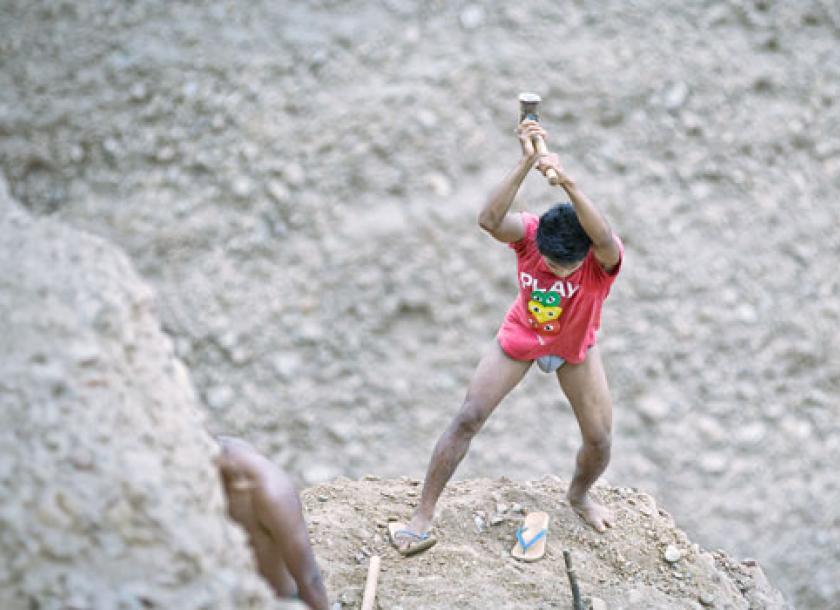
Myanmar will submit its debut report disclosing information on its extractive industries next month, in the hope of being accepted as a compliant member of the International Extractive Industries Transparency Initiative (EITI), officials said yesterday.
The initiative is the global standard for transparency on natural resource governance.
Myanmar’s involvement has been widely welcomed, although many have raised concerns that the report will not include adequate information on a number of troubled sectors, including jade.
Nevertheless, Myanmar’s EITI coordinator U Zaw Oo said at a press conference yesterday that he expects the country will “pass this examination, and will start reforming plans after that”.
The report is expected to be made public at the end of December.
Myanmar was approved as the 45th candidate country at an international EITI board meeting in July 2014.
A multi-stakeholder group including government officials, private enterprises and civil society groups was formed to oversee the country’s application in early 2014.
The report will include information from 13 oil and gas companies representing 100 percent of government revenues in the 2013-14 financial year; 30 gems companies representing 67pc of revenues from the Nay Pyi Taw gems emporium in the same year; and 11 companies representing 50pc of revenues in the mining sector, said officials yesterday.
A number of government departments have also participated in the report, from ministries including the Ministry of Mines, the Ministry of Energy, the Ministry of Finance including the Internal Revenue Department (IRD) and the Ministry of Environmental Conservation and Forestry.
Myanmar is the first country to include the gems sector in an EITI report.
Revenue and tax received from oil and gas pipelines will be disclosed, though it is not compulsory, officials said.
In addition, the working group said it has urged the Chinese developers of three large projects to participate, including Wanbao, which operates a controversial copper mining project at Letpadaung.
U Kyaw Thu, a civil society member of the multi-stakeholder group, said the nightmare of dictatorship haunts the current government, which badly needs accountability, even though it wants to change.
It has so far been impossible to track the income from extractive industries and what it has been used for, he said.
“We can track such things through this report, and also discover other problems like beneficial ownership in investments,” he said.
In many cases in Myanmar, the identity of the real owners, or beneficial owners, of projects is not publicly known.
According to EITI’s website, such opacity can lead to corruption, money laundering and tax evasion in the extractive sector.
U Zaw Oo said the Ministry of Finance is responsible for restructuring some government departments as part of the EITI process, including reforms to public financial management and the tax system.
As part of these reforms, it opened the Treasury Department last year, and the Large Tax Payers Office in early 2014, he said.
Most large taxpayers operate in the extractive industries and are therefore a focus for the IRD, as they contribute the largest revenue share, he said.
“The extractive industries were responsible for 40pc of Myanmar’s export income in the 2014 fiscal year, falling from more than 50pc in the past,” he said.
These figures are based on research over the past 18 months with the assistance of international advisors, he added.
Accounting and business advisory firm Moore Stephens is working on the draft report, according to press release.
For economist U Aung Ko Ko, the report cannot be expected to be perfect, as it is Myanmar’s first attempt at it.
However, he sees the report’s release as a turning point for the extractive industries, which have been plagued by a lack of transparency for many years.
U Zaw Tun of Shan civil society group Integrated Development Executive Association said he is worried that the report will not reflect the true situation, because government statements about the jade sector have markedly differed from statements made by advocacy groups such as Global Witness.
“I have some concerns, but this report will be written in cooperation between the government and civil organisations, and the government will have to represent the people,” he said.
“If we approach it from this positive angle, it’s a good development.”
